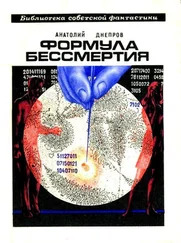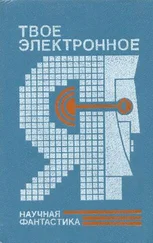Анатолий Днепров - Siema
Здесь есть возможность читать онлайн «Анатолий Днепров - Siema» весь текст электронной книги совершенно бесплатно (целиком полную версию без сокращений). В некоторых случаях можно слушать аудио, скачать через торрент в формате fb2 и присутствует краткое содержание. Город: Toronto, Год выпуска: 1962, Издательство: Collier Books, Жанр: Фантастика и фэнтези, на английском языке. Описание произведения, (предисловие) а так же отзывы посетителей доступны на портале библиотеки ЛибКат.
- Название:Siema
- Автор:
- Издательство:Collier Books
- Жанр:
- Год:1962
- Город:Toronto
- ISBN:нет данных
- Рейтинг книги:5 / 5. Голосов: 1
-
Избранное:Добавить в избранное
- Отзывы:
-
Ваша оценка:
- 100
- 1
- 2
- 3
- 4
- 5
Siema: краткое содержание, описание и аннотация
Предлагаем к чтению аннотацию, описание, краткое содержание или предисловие (зависит от того, что написал сам автор книги «Siema»). Если вы не нашли необходимую информацию о книге — напишите в комментариях, мы постараемся отыскать её.
Siema — читать онлайн бесплатно полную книгу (весь текст) целиком
Ниже представлен текст книги, разбитый по страницам. Система сохранения места последней прочитанной страницы, позволяет с удобством читать онлайн бесплатно книгу «Siema», без необходимости каждый раз заново искать на чём Вы остановились. Поставьте закладку, и сможете в любой момент перейти на страницу, на которой закончили чтение.
Интервал:
Закладка:
"Siema quickly learned to use her new sense organs. She learned to tidy the room, to pour tea, cut bread and sharpen pencils. She soon began to do independent research, and before long my room began to look like a physics and chemistry laboratory with Siema doing complicated measurements. Her extremely sensitive organs of touch enabled her to do this with amazing speed.
"Her microscope studies were particularly fruitful. Patiently examining diverse preparations with her microscopic eye, she often detected details and processes no one had noticed before. She quickly compared her discoveries with what she had read and instantly made the most amazing, I would even say, breath-taking deductions. She continued to read a vast quantity of literature. Once, after reading Hugo's The Man who Laughs, she startled me by asking:
" 'Tell me, please, what is love, what is fear and pain?'
" 'These are purely human emotions, Siema. You will never understand them.'
" 'You think a machine cannot have such emotions?' she demanded.
" 'Of course not.'
" In that case the machine is imperfect. You must have overlooked something in the design.'
"I shrugged my shoulders and did not answer. By this time I was accustomed to these strange remarks and attached no importance to them. Siema continued to assist me in all my scientific work-she typed my notes, did calculations, quoted scientific references, selected the books on any subject I needed, offered advice and sug* gestions and argued constantly with me.
"At this period I had published several books on the theory of electronic machines and on electronic models which had evoked heated controversies in the scientific world. Some considered my work highly interesting, others declared it to be fantastic nonsense. No one suspected that I had had the assistance of Siema.
"I had not shown Siema or mentioned her to anyone, I planned a sensational debut for her at the World Electronic Congress where she would read a paper 'Electronic Modelling of the Higher Nervous Activity of Man,' a theme we were then working on. I pictured with glee the faces of my opponents-those who maintain that electronic reproduction of human thinking is unscientific- when Siema appeared to address the congress!
"Busy as I was with my preparations for the congress, I could not help noticing a certain strangeness in Siema's behaviour. Whenever she was not engaged in some task, instead of reading or studying as formerly she would slide over to my chair and stand silently staring at me. At first I paid no attention, but after a while this began to get on my nerves. Once, after dinner, I fell asleep on the couch. I awoke with a start, conscious of a most unpleasant sensation. On opening my eyes I saw Siema standing beside me, feeling me all over.
" 'What are you doing?' I cried. " 'I am studying you,' she replied calmly. " 'What the devil for?'
" 'Don't be angry,' she said. 'You agree, I believe, that the most perfect model of an electronic machine ought to be largely a replica of man. You have instructed me to write a paper on the subject, but I cannot do that until I know exactly how man is made.'
" 'You can take any textbook on anatomy or physiology and read up. Why must you bother me?'
" 'The longer I observe you, the more I see that all these textbooks are very superficial. They omit the most important thing. They do not explain the life mechanism in man.'
" 'What do you mean?'
" I mean that all the textbooks, especially those on higher nervous activity, describe phenomena showing the chain of cause and effect, but they do not analyse the whole system of communications that accompanies that activity.'
" 'Do you seriously believe you will be any the wiser if you stare at me for hours on end or poke me while I sleep?'
" 'Certainly,' she replied. 'I already know much more about you than can be learned from books you recommend. For instance, there is nothing in the books about the electrical and temperature topography of the human body. Now I know how, in what direction and with what force the electric currents flow on the surface of the human body. I can tell the exact surface temperature of your body within a millionth of a degree. I was much surprised to find that your temperature in the area of the rhombencephalon is rather high. The tension of the surface current is excessive here too. As far as I know that is abnormal. Is it not a sign of some inflammatory process inside the brain? Are you sure you are quite right in your head?'
"I could find no answer to this.
"For the next few days I worked steadily on my article on electronic models. At last it was ready and I read it to Siema. She listened quietly and when I had finished, she said:
" 'Rubbish. Out of date. Not a single new idea in the whole thing.'
" 'Look here,' I protested. 'This is too much. I am sick and tired of all your criticism!5
" 'Don't be silly. Use your brains, for goodness' sake! You say it is possible to make a model of the brain by using condensors, resistance coils, transistors and magnetic recordings. But what about yourself? Is there a single condensor or transistor in your make-up? Are you fed by electricity? Do you have wires for nerves and television tubes instead of eyes? Does your speaking apparatus consist of a sound generator with a loudspeaker attachment, and your brain of a magnetized surface?'
" 'But don't you understand, Siema, I am writing about building a model of a human being, not about reproducing one by means of radio parts. A machine like yourself.'
" 'I am nothing to boast about. I am not much of a model,' she declared.
" 'Why do you say that?'
" 'Because I cannot do a fraction of what you humans can do.'
"I was dumbfounded by this admission.
" 'I am a poor machine because I have no feeling and am restricted in my development. When all the spare circuits you have designed for my self-improvement are used up, when the entire surface of the sphere in which my memory resides will be covered with code signals I shall stop perfecting myself and become an ordinary limited electronic machine which will not be able to learn anything more than you have put in it.'
" 'Yes, but there are limits to man's capacity for knowledge too.'
" 'That is where you are gravely mistaken. There are no limits to human knowledge. Man is limited only by his life-span. But he transmits his knowledge and his experience to succeeding generations and hence the total sum of human knowledge is always increasing. Men are constantly making new discoveries. Electronic machines can only do this within the limits of the design and program you have given them. Incidentally, why did you give me such a small sphere? Its surface is almost used up already.'
" I thought it would be quite sufficient for my purposes,' I replied.
" 'For yours, perhaps. But not for mine. You did not think that sooner or later I would have to begin saving space in order to memorize only what is vitally important for us both.'
" 'Look here, Siema, don't talk nonsense,' I said. 'Nothing can be important for you.'
" 'But haven't you convinced me that the most important task at present is to probe the secret of higher nervous activity in man?'
" 'Yes, but that will be done in due time. Our scientists will have to puzzle over that problem for a long time to come.'
" 'Exactly. Whereas I could solve it with much less trouble.'
"In spite of Siema's criticism I did not revise my article. I left it with her to translate into the various foreign languages and went to bed.
"Some time in the middle of the night, I do not remember the exact time, I was again awakened by the unpleasant touch of cold metallic fingers. I opened my eyes and saw Siema standing over me as before.
" 'Up to your old tricks again?' I said, trying not to betray my revulsion.
Читать дальшеИнтервал:
Закладка:
Похожие книги на «Siema»
Представляем Вашему вниманию похожие книги на «Siema» списком для выбора. Мы отобрали схожую по названию и смыслу литературу в надежде предоставить читателям больше вариантов отыскать новые, интересные, ещё непрочитанные произведения.
Обсуждение, отзывы о книге «Siema» и просто собственные мнения читателей. Оставьте ваши комментарии, напишите, что Вы думаете о произведении, его смысле или главных героях. Укажите что конкретно понравилось, а что нет, и почему Вы так считаете.





